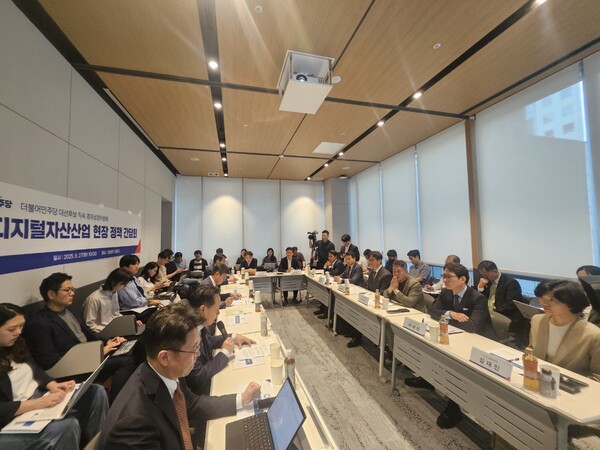
Stablecoin, which is currently being discussed for global adoption, was expected to be the last opportunity to breathe life into the stagnant domestic blockchain industry.
Ryu Chang-bo, chairman of the Open Blockchain Association, diagnosed the recent stablecoin activation movement during the keynote presentation at the first regular meeting of the blockchain demand and supply consortium 'ABLE' held by the Ministry of Science and ICT and KISA at the Dragon City Hotel in Yongsan-gu, Seoul on the 9th.
Chairman Ryu said, "As all assets are changing to a digital form of tokens, the digital payment method for buying and selling digitized assets is stablecoin" and "Stablecoin will become a key infrastructure connecting the settlement system and asset tokenization beyond a simple payment method."
He mentioned the cases where the blockchain industry was excited whenever topics like metaverse and security token offerings (STO) were raised, but repeatedly failed to institutionalize. He emphasized the need to connect the recent stablecoin trend to the recovery of the blockchain industry.
He stressed the importance of public nature and reliability for the successful introduction of stablecoin. So far, blockchain technology has been utilized centered on personal domains. He analyzed that due to low interoperability, blockchain technology and the industry in the public sector are facing a crisis.
He pointed out that the technological capabilities have weakened, relying more on foreign solutions rather than developing and utilizing domestic blockchain technologies. While emphasizing the activation of the public sector blockchain ecosystem, he also suggested thoroughly preparing for information security risks.
Chairman Ryu warned, "Once stablecoin enters the market and risks emerge, it will be impossible to retrieve," and mentioned overseas reports about North Korea laundering funds through stablecoin.
Cho Won-hee, chairman of the Korea Blockchain Startup Association, said, "Even the US Securities and Exchange Commission (SEC), which was partially negative about digital assets, is showing policy changes regarding stablecoin," and predicted that the Lee Jae-myung government's stablecoin institutionalization process would be a barometer for digital asset policies beyond financial sector opposition.
Chairman Cho pointed out that while the EU's Market in Crypto-Assets (MiCA) legislation covers digital assets comprehensively, similar legislation has not yet been implemented domestically. He noted that while the recently proposed Digital Asset Basic Act is meaningful as a starting point for discussion, it is disappointing that it focuses more on digital asset regulation than blockchain industry promotion.
He mentioned that Korea's blockchain transaction volume ranks third globally and expressed hope that if stablecoin and security token offerings (STO) are institutionalized, the domestic blockchain industry could lead the global market.
An Chang-won, PM at the Institute of Information and Communications Technology Planning and Evaluation, highlighted blockchain as a key technology that adds trust to AI data in the era of AI normalization. He said blockchain technology can be used to verify whether AI-learned data contains false information or potential personal information violations, and suggested it could be an alternative to centralized big tech AI platforms.







